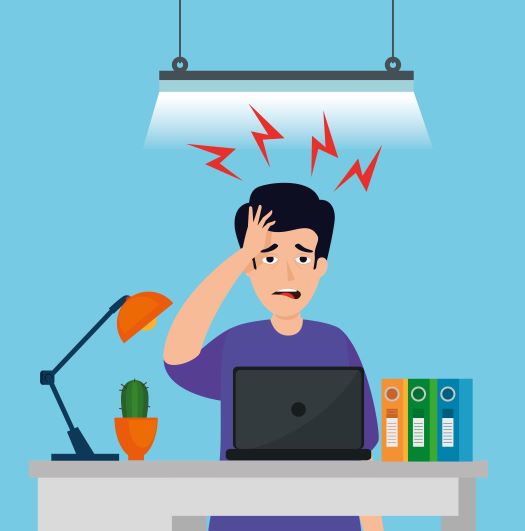
Brain fog can be a frustrating and debilitating experience, making it difficult to think clearly and concentrate. If you’re struggling with brain fog, you’re not alone. Many people deal with this issue, but the good news is that there are proven methods to help eliminate it. This comprehensive guide will explore 10 effective strategies to clear the fog and improve your mental clarity.
Table of Contents
What is Brain Fog?
Brain fog is a term used to describe a range of symptoms that affect your ability to think clearly. It can feel like you’re in a mental haze, making it hard to focus, remember things, or make decisions. While not a medical condition itself, brain fog is often a symptom of an underlying issue, such as stress, sleep deprivation, or an unhealthy lifestyle.
Common Causes of Brain Fog
Brain fog can be caused by a variety of factors, including:
- Lack of sleep
- Dehydration
- Poor diet
- Stress
- Anxiety
- Depression
- Hormonal changes
- Medications
- Medical conditions (e.g., thyroid issues, autoimmune diseases)
10 Proven Methods to Eliminate Brain Fog
1. Improve Your Diet
Nutrient-Dense Foods
Eating a diet rich in essential nutrients can significantly impact your brain function. Omega-3 fatty acids in fish like salmon and sardines are crucial for brain health. Antioxidants in berries, leafy greens, nuts, and seeds help protect your brain from oxidative stress. Including a variety of colorful fruits and vegetables ensures you get a wide range of vitamins and minerals essential for cognitive function.
Avoid Processed Foods
Highly processed foods and those high in refined sugars can lead to fluctuations in blood sugar levels, causing energy crashes and brain fog. Reducing your intake of these foods can help stabilize your energy levels and improve your focus.
2. Get Quality Sleep
Establish a Sleep Routine
Consistency is key to a good night’s sleep. Going to bed and waking up at the same time every day helps regulate your body’s internal clock. Create a relaxing bedtime routine that might include reading, gentle stretching, or listening to calming music.
Avoid Stimulants
Caffeine and electronic devices can interfere with your ability to fall asleep and stay asleep. Try to limit caffeine intake after midday and avoid screens at least an hour before bedtime. Instead, opt for activities that promote relaxation and prepare your body for rest.
3. Manage Stress
Practice Relaxation Techniques
Incorporating relaxation techniques into your daily routine can help manage stress and reduce brain fog. Meditation, yoga, and deep-breathing exercises are effective ways to calm the mind and reduce stress hormones like cortisol, which can impair cognitive function.
Take Breaks
Regular breaks throughout the day can prevent mental fatigue and help maintain focus. Use these breaks to stretch, take a short walk, or practice mindfulness, allowing your brain to recharge and improve productivity.

4. Stay Hydrated
Drink Plenty of Water
Dehydration can impair cognitive abilities and lead to brain fog. Aim to drink at least 8 glasses of water daily. Carrying a reusable water bottle with you can help remind you to stay hydrated.
Limit Dehydrating Beverages
Beverages like coffee and alcohol can contribute to dehydration. While it’s okay to enjoy them in moderation, make sure to balance their intake with plenty of water to keep your hydration levels up.
5. Exercise Regularly
Incorporate Physical Activity
Regular physical activity boosts blood flow to the brain, which can enhance cognitive function and reduce symptoms of brain fog. Aim for at least 30 minutes of moderate exercise, such as walking, cycling, or swimming, most days of the week.
Try Mind-Body Exercises
Exercises like yoga and tai chi combine physical movement with mental focus, improving both physical and mental well-being. These activities can help reduce stress, increase flexibility, and improve cognitive function.
6. Take Brain-Boosting Supplements
Omega-3 Fatty Acids
Omega-3 fatty acids are essential for brain health. They can be found in fish oil supplements or foods like flaxseeds and walnuts. These supplements support cognitive function and may help reduce brain fog.
Vitamins and Minerals
B vitamins, particularly B6, B9 (folate), and B12, are crucial for brain health. Vitamin D and magnesium also play important roles in maintaining cognitive function. Consider supplements if you’re not getting enough of these nutrients from your diet.
7. Practice Mental Exercises
Brain Games
Engage in activities that challenge your brain, such as puzzles, crosswords, and memory games. These exercises can help improve cognitive skills and keep your mind sharp.
Learning New Skills
Picking up a new hobby or learning a new skill can stimulate your brain and improve cognitive function. Whether it’s learning a new language, playing a musical instrument, or taking up a new craft, these activities keep your brain engaged and healthy.
8. Limit Multitasking
Focus on One Task at a Time
Multitasking can overwhelm your brain and lead to mental fatigue. Prioritize your tasks and focus on completing them one at a time. This approach can enhance your productivity and reduce brain fog.
Use Time Management Techniques
Techniques like the Pomodoro Technique, where you work for 25 minutes and then take a 5-minute break, can help you manage your time effectively and maintain focus throughout the day.
9. Address Underlying Health Issues
Regular Check-Ups
Regular visits to your healthcare provider can help identify and manage any medical conditions that may be contributing to brain fog. Conditions such as thyroid disorders, diabetes, and chronic fatigue syndrome can affect cognitive function.
Medication Review
Some medications have side effects that can cause brain fog. Review your medications with your healthcare provider to ensure they are not negatively impacting your cognitive health. Your doctor may adjust dosages or suggest alternatives if necessary.
10. Create a Healthy Environment
Reduce Clutter
A cluttered environment can contribute to stress and distract your focus. Keeping your workspace and living areas organized can help create a more serene and productive atmosphere.
Optimize Lighting
Proper lighting is essential for maintaining alertness and focus. Natural light is best, but if that’s not possible, ensure your workspace is well-lit with bright, artificial light to enhance your cognitive performance.
A Quick Review
Brain fog can be a significant hindrance to your daily life, but with these 10 proven methods, you can take proactive steps to eliminate it and improve your mental clarity. From dietary adjustments and regular exercise to managing stress and staying hydrated, these strategies will help you regain focus and enhance your cognitive function. Implement these tips today to experience the benefits of a clearer, sharper mind.
What are the common symptoms of brain fog?
Common symptoms include difficulty concentrating, memory lapses, mental fatigue, and a general sense of confusion or “fuzziness.”
Can diet affect brain fog?
Yes, a poor diet high in sugar and processed foods can contribute to brain fog. Eating nutrient-dense foods can help improve mental clarity.
How does sleep impact brain fog?
Lack of sleep can impair cognitive function and lead to brain fog. Establishing a regular sleep routine can help alleviate this issue.
Are there supplements that can help with brain fog?
Supplements such as omega-3 fatty acids, B vitamins, and magnesium can support brain health and reduce symptoms of brain fog.
Can stress cause brain fog?
Chronic stress can lead to elevated cortisol levels, which can negatively impact brain function and cause brain fog.
What exercises can help with brain fog?
Regular physical activity, including aerobic exercises and mind-body practices like yoga, can enhance cognitive function and reduce brain fog.
